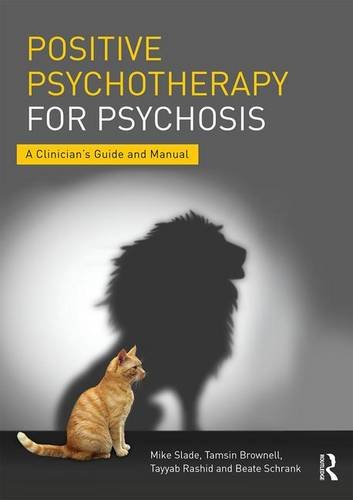

Most ebook files are in PDF format, so you can easily read them using various software such as Foxit Reader or directly on the Google Chrome browser.
Some ebook files are released by publishers in other formats such as .awz, .mobi, .epub, .fb2, etc. You may need to install specific software to read these formats on mobile/PC, such as Calibre.
Please read the tutorial at this link: https://ebookbell.com/faq
We offer FREE conversion to the popular formats you request; however, this may take some time. Therefore, right after payment, please email us, and we will try to provide the service as quickly as possible.
For some exceptional file formats or broken links (if any), please refrain from opening any disputes. Instead, email us first, and we will try to assist within a maximum of 6 hours.
EbookBell Team

4.0
86 reviewsPositive Psychotherapy for Psychosis describes a new psychological intervention, which for the first time applies emerging research from the field of positive psychology specifically to psychosis. The book contains guidance on adapting the approach for use in individual treatments, and on providing part of the intervention, either as individual sessions or by integrating Positive Psychotherapy for Psychosis sessions into other treatments.
Divided into two sections – Theory and the Intervention Manual – this book offers methodologically rigorous research, case studies and detailed aims and instructions for clinicians and therapists. The structured, step-by-step manual, for use with clients, includes downloadable handouts, session materials, activities, guides and therapist tips. The manual will be a practical, positive and innovative resource for mental health professionals, providing all the material needed to deliver this evidence-based approach that is designed to improve wellbeing and reduce symptoms experienced by people living with psychosis.
Positive Psychotherapy for Psychosis will be of interest to mental health clinicians working with people with psychosis, as well as clinical and counselling psychologists, psychiatrists, mental health nurses, psychotherapists, social workers, occupational therapists, support workers and peer support specialists.